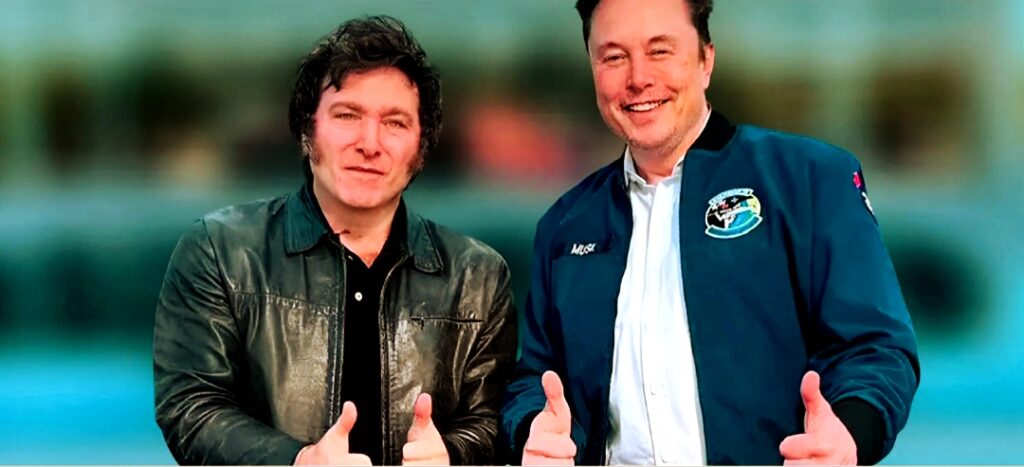Manashimaya

Javier Milei, the first libertarian president in history, has garnered significant global attention with his unconventional approach to politics and ambitious economic reforms. Central to his strategy is a unique diplomatic approach known as ‘CEO diplomacy’.
Unconventional Diplomatic Strategy
Javier Milei’s ‘CEO Diplomacy’ involves prioritising engagements with business leaders over traditional diplomatic meetings with heads of state. Since taking office, Milei has made seven international trips, including four to the United States, where he has notably avoided meetings with President Joe Biden and Vice President Kamala Harris. Instead, he has focused on meeting influential business figures like Elon Musk, Mark Zuckerberg, and other tech industry leaders. This unconventional approach aims to attract foreign direct investment (FDI) to modernise Argentina’s infrastructure and boost exports.
Ideological Foundations
Milei’s strategy is deeply rooted in his libertarian ideology, influenced by the Austrian School of Economics. This ideology advocates for minimal state intervention, aligning with Milei’s belief that influential business leaders can drive economic success more effectively than traditional state diplomacy. His approach reflects a vision where the international system is viewed through the lens of individual influence rather than state-centric power.
Challenges in the Current Global Landscape Despite the innovative nature of Milei’s approach, significant challenges exist. States continue to play a pivotal role in shaping global economic policies. Geopolitical tensions and trade-distortive measures increasingly influence FDI decisions, as highlighted by a recent IMF working paper. These factors underscore the enduring importance of state-to-state relations in guiding investment flows. Thus, the effectiveness of Milei’s CEO-centric strategy is questionable in the current global environment.
Need for Pragmatic Diplomacy
Milei’s libertarian principles, while innovative, may limit the effectiveness of his foreign policy. Recognising the critical role of modern states in driving economic priorities and investment is essential. A more pragmatic diplomatic strategy that balances engagements with business leaders and state actors could prove more effective.
Domestic Reforms: A Crucial Component
Attracting substantial FDI requires addressing Argentina’s significant domestic economic challenges. Improving the macroeconomic environment by reducing public expenditure, tightening monetary policy, and eliminating foreign exchange controls is crucial. Additionally, creating a fiscal framework that incentivises investment and provides targeted stimulus to key sectors, such as natural resources and biotechnology, is essential.
Conclusion
In conclusion, Javier Milei’s ‘CEO Diplomacy’ presents an innovative approach to attracting FDI. However, its success is uncertain given the current global dynamics and the pivotal role of state actors. For Argentina to become a more attractive destination for investment, Milei’s foreign policy must be pragmatic and complemented by substantial domestic economic reforms. Only then can Argentina realise its full potential and attract significant FDI, answering the pivotal question: Javier Milei’s ‘CEO Diplomacy’: Can it attract FDI to Argentina?
